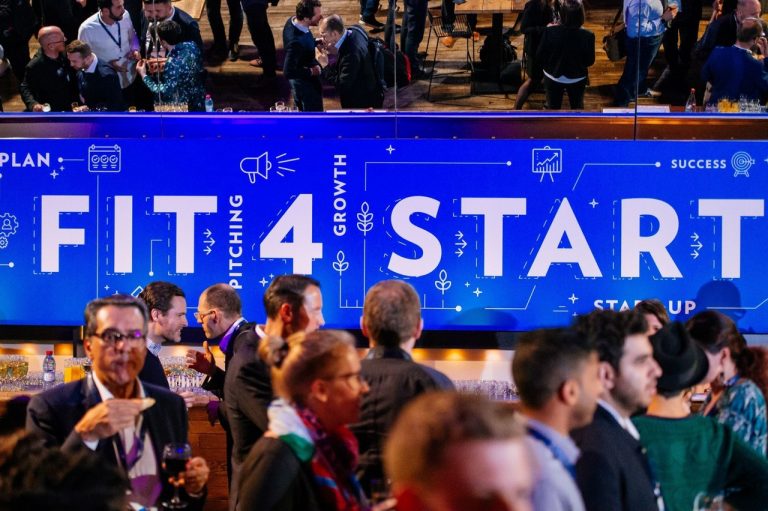
The 20 start-ups selected for the twelfth Fit 4 Start, Luxembourg’s flagship acceleration programme, created by the Ministry of the Economy and managed by Luxinnovation with Technoport, the Luxembourg-City Incubator and the Luxembourg Space Agency, were unveiled on 16 December. 214 candidates from 42 countries had to be selected, the pitch sessions took place online between September 13 and October 4.
Fit 4 Start was initiated in 2015. For this 12th edition, an additional category, focused on high performance computing (HPC) and data analytics, was added, so start-ups under 5 years old had to be active in the fields:
- Information Technology and Telecommunications; (ICT)
- Health ;
- Space;
- high performance computing and data analysis.
The 20 start-ups selected in the four categories will receive specialised coaching, funding from the Ministry of Economy in the amount of €50,000 each, with the possibility of receiving an additional €100,000 if they successfully exit the programme and manage to raise private capital. In addition, the 3 start-ups selected in the new category will benefit from a special computing programme, including access to the computing and data analysis capabilities of the national supercomputer MeluXina. Stefan Berend, Head of Start-up acceleration at Luxinnovation, said:
“This new category attracted 20 applications, which means there is real interest in this type of offer from startups. It directly links Fit 4 Start to MeluXina, which is a highly strategic government initiative aimed, among other things, at building a competitive ecosystem for ambitious startups.”
Economy Minister Franz Fayot added:
“The Fit 4 Start accelerator program is a powerful enabler that offers entrepreneurs attractive pre-seed funding. In addition, the new HPC and data analytics
category offers a unique opportunity to benefit from the real added value we can offer in Luxembourg in terms of technology and expertise in the field of supercomputing and I hope this will lead to the development of innovative solutions.”
As in previous editions, one third of the applications came from Luxembourg, with the remainder split equally between EU and non-EU start-ups. This twelfth call for applications also showed a clear trend towards AI-related solutions. Indeed, 30% of the applications used this technology, followed equally by the Internet of Things and machine learning (11%). The program will start in early January. It will last 6 months, with coaching sessions taking place both physically and online depending on the health situation…
The selected startups
ICT
- Circu Li-ion (Luxembourg), to optimize the life span of lithium-ion batteries by automating the dismantling of battery packs.
- Devseis Consultancy (Luxembourg): for “TrustChain”, a cloud solution that allows suppliers to create and share type 1 reports on RGPD (General Data Protection Regulation) compliance.
- ITC (Israel), for an application to prevent traffic jams, managing them just before they start to form.
- Recube (Luxembourg), a platform to enable small and medium fashion brands to develop their collections with a minimum of waste, time and cost using 3D technologies and machine learning.
- Rejustify (Luxembourg), which automatically prepares statistical data sets. It uses machine learning to find, access and merge data from multiple sources in real time.
- RiDERgy (Germany): its B2B software aims to reduce the costs of electric vehicle fleets through artificial intelligence (AI)-optimized programming interfaces, a charging schedule tailored to renewable energy fluctuations, leveraging energy market revenues and various mobility data.
- Smart Beehive (United Arab Emirates): a “technological beehive” that protects against the varroa mite without chemicals. Its technology also allows beekeepers to increase productivity and margins by optimizing operations.
Space
- AM 4 AM (Luxembourg), development of new high-performance materials for additive manufacturing (3D printing) for industry.
- Digantara (India), a high-fidelity orbital vision for a sustainable space.
- Hypernova (South Africa): building infrastructure for satellites in space.
- Ride! (France) digitising and simplifying access to space by connecting satellite operators to the entire launch value chain.
- The Lunar Grid (Luxembourg) provides a continuous and high power supply to actors on the lunar surface.
Health
- AkknaTek (Germany): its patented technology offers to control the precision of lens implantation in cataract surgery.
- Dropslab Technologies (Luxembourg), offers a platform using augmented reality to allow surgeons, medical device specialists and other experts to work together remotely.
- Dynaccurate (Luxembourg): its technology makes different health data interoperable.
- KidnAI (Luxembourg): AI-based scan analysis tool to improve the accuracy of diagnosis of kidney diseases, especially in babies.
- Voicemed (Luxembourg) enables remote screening and monitoring by recognizing health status through sounds and artificial intelligence.
In data analysis and HPC
- Databourg (Luxembourg): provision of absorbable rainfall data.
- Mopso (Italy): improving anti-money laundering controls by integrating huge amounts of data, both internal and external, into financial institutions, finding connections and risk patterns in customer behaviour, reducing false positives and identifying suspicious activities.
- RSS-Hydro (Luxembourg): developing tailor-made geospatial products for more informed decision-making in achieving sustainable development goals, with a particular focus on water-related risks.
Translated from Les 20 start-ups sélectionnées pour la 12ème édition du Fit 4 Start dévoilées.









